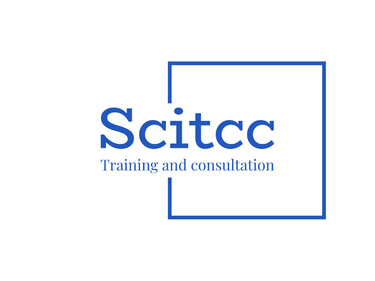
Agile Facilitation Skills
Bridging Teams and Outcomes
$5500.00
Agile Facilitation Skills: Comprehensive 5-Day Course Outline
Master the Art of Leading High-Performing Agile Teams
This intensive 5-day Agile Facilitation Skills course outline transforms participants into expert facilitators capable of driving collaborative excellence, unlocking team potential, and accelerating organizational agility. Designed for Scrum Masters, Agile Coaches, Team Leads, and anyone responsible for guiding teams through Agile transformations, this comprehensive program combines proven facilitation techniques with practical Agile frameworks to deliver measurable team performance improvements.
Day 1: Foundations of Agile Facilitation
Morning Session: Facilitation Mindset and Principles (9:00 AM - 12:30 PM)
Module 1.1: Introduction to Agile Facilitation Excellence
Facilitation versus instruction, coaching, and mentoring
The facilitator’s stance: Neutral servant-leadership
Creating psychologically safe environments for collaboration
Building trust and establishing facilitation credibility
Module 1.2: Agile Values and Facilitation Alignment
Agile Manifesto principles and facilitation practices
Scrum values: Commitment, courage, focus, openness, respect
Lean thinking and eliminating facilitation waste
Servant-leadership mindset in facilitation contexts
Facilitating self-organizing and cross-functional teams
Module 1.3: Understanding Group Dynamics
Tuckman’s stages: Forming, storming, norming, performing
Recognizing and navigating team development phases
Personality types and communication preferences (DISC, Myers-Briggs)
Power dynamics and managing difficult participants
Building consensus and handling resistance to change
Afternoon Session: Essential Facilitation Competencies (1:30 PM - 5:00 PM)
Module 1.4: Core Facilitation Skills Development
Active listening techniques and empathetic engagement
Powerful questioning strategies: Open-ended, probing, reflective
Observation and reading non-verbal communication
Time management and maintaining productive pace
Managing energy levels throughout sessions
Module 1.5: Communication and Presentation Mastery
Articulating complex ideas with clarity
Adapting communication styles to diverse audiences
Visual communication and graphic facilitation basics
Voice modulation, body language, and presence
Virtual facilitation fundamentals for remote teams
Workshop: Practicing foundational facilitation skills
Day 2: Designing and Structuring Agile Events
Morning Session: Facilitation Design Thinking (9:00 AM - 12:30 PM)
Module 2.1: Workshop and Meeting Design Principles
Purpose-driven session design methodology
Defining clear objectives and desired outcomes
Participant analysis and stakeholder mapping
Agenda design: Structure, flow, and timing considerations
Pre-work preparation and materials development
Module 2.2: Facilitating Scrum Events
Sprint Planning facilitation strategies and techniques
Daily Scrum patterns for maximum engagement
Sprint Review facilitation: Showcasing value and gathering feedback
Sprint Retrospective design and continuous improvement culture
Backlog refinement sessions and collaborative estimation
Module 2.3: Facilitation Tools and Techniques
Brainstorming methods: Classic, brainwriting, round-robin
Affinity mapping and theme identification
Dot voting and prioritization techniques
Timeboxing and parking lot management
Decision-making frameworks: Fist of five, Roman voting, consent-based
Afternoon Session: Advanced Facilitation Frameworks (1:30 PM - 5:00 PM)
Module 2.4: Liberating Structures for Team Collaboration
Introduction to Liberating Structures principles
1-2-4-All: Progressive idea generation and refinement
Troika Consulting: Peer-to-peer problem solving
15% Solutions: Identifying immediate actionable changes
TRIZ: Liberating contradictory strategies
Min Specs: Defining essential conditions for success
Module 2.5: Visual Facilitation and Thinking Tools
Visual thinking fundamentals and benefits
Creating impactful visual templates and canvases
Impact mapping and story mapping techniques
Real-time graphic recording and sketch noting
Digital whiteboarding tools: Miro, Mural, Lucidspark
Practical exercise: Designing an engaging workshop agenda
Day 3: Facilitating Retrospectives and Continuous Improvement
Morning Session: Retrospective Facilitation Mastery (9:00 AM - 12:30 PM)
Module 3.1: The Art and Science of Retrospectives
Retrospective purpose and psychological foundations
The Prime Directive: Creating blame-free environments
Five-stage retrospective structure: Set stage, gather data, generate insights, decide actions, close
Frequency and duration optimization strategies
Measuring retrospective effectiveness and team satisfaction
Module 3.2: Retrospective Techniques and Formats
Start-Stop-Continue framework for behavior analysis
Sailboat/Speedboat: Identifying anchors and winds
4Ls: Liked, Learned, Lacked, Longed For
Mad-Sad-Glad: Emotional temperature checking
Timeline retrospectives for complex sprint analysis
Appreciative inquiry approaches: Focus on strengths
Module 3.3: Facilitating Action and Accountability
Converting insights into concrete action items
SMART goals for retrospective actions
Action tracking and follow-through mechanisms
Overcoming retrospective fatigue and repetition
Experimenting with improvement hypotheses
Afternoon Session: Handling Difficult Situations (1:30 PM - 5:00 PM)
Module 3.4: Conflict Resolution and Challenging Conversations
Recognizing and addressing dysfunction patterns
Facilitating healthy disagreement and debate
Managing dominant personalities and silent participants
Addressing elephants in the room tactfully
Mediating conflicts without taking sides
De-escalation techniques for heated discussions
Module 3.5: Dealing with Resistance and Dysfunction
Understanding sources of resistance to change
Working with cynical or disengaged team members
Facilitating through organizational impediments
Handling off-topic discussions and tangents
Managing time constraints and competing priorities
Role-play exercises: Navigating difficult facilitation scenarios
Day 4: Advanced Facilitation Techniques and Scaling
Morning Session: Strategic Facilitation Practices (9:00 AM - 12:30 PM)
Module 4.1: Facilitating Innovation and Ideation Sessions
Design thinking workshop facilitation
Innovation games: Product box, speedboat, prune the tree
Lean Startup techniques: Hypothesis canvas, MVP definition
User story mapping collaborative sessions
Facilitating experimentation and prototyping activities
Module 4.2: Large-Group and Multi-Team Facilitation
Scaling facilitation techniques for 25+ participants
Open Space Technology for self-organizing conversations
World Café methodology for distributed dialogue
PI Planning facilitation in SAFe environments
Coordinating cross-team dependencies and synchronization
Managing breakout groups and reporting back effectively
Module 4.3: Strategic Planning and Alignment Workshops
Vision and mission development facilitation
OKR (Objectives and Key Results) setting workshops
Quarterly business reviews and planning sessions
Roadmap prioritization and release planning
Facilitating make-versus-buy and build-versus-leverage decisions
Afternoon Session: Remote and Hybrid Facilitation (1:30 PM - 5:00 PM)
Module 4.4: Virtual Facilitation Excellence
Adapting in-person techniques for virtual environments
Technology stack: Zoom, Teams, collaboration platforms
Engaging remote participants and preventing Zoom fatigue
Virtual icebreakers and energizers
Managing technical difficulties gracefully
Screen sharing, breakout rooms, and polling strategies
Module 4.5: Hybrid Facilitation Challenges
Balancing in-room and remote participant experience
Technology setup for hybrid sessions
Ensuring equal voice and participation across locations
Co-facilitation strategies for hybrid environments
Recording, documentation, and asynchronous follow-up
Practice session: Facilitating a hybrid retrospective
Day 5: Mastery and Continuous Growth
Morning Session: Facilitator’s Toolkit and Resources (9:00 AM - 12:30 PM)
Module 5.1: Building Your Facilitation Repertoire
Creating personal facilitation playbooks
Curating technique libraries and activity databases
Adapting techniques to organizational culture
Measuring facilitation impact and gathering feedback
Continuous learning resources and communities of practice
Module 5.2: Coaching Teams Through Facilitation
Transitioning from facilitation to coaching
Teaching teams to self-facilitate over time
Building facilitation capability within teams
Mentoring emerging facilitators in your organization
Module 5.3: Ethical Facilitation and Professional Standards
IAF (International Association of Facilitators) core competencies
Maintaining neutrality and avoiding bias
Confidentiality and psychological safety principles
Managing conflicts of interest
Cultural sensitivity and inclusive facilitation practices
Afternoon Session: Integration and Certification (1:30 PM - 5:00 PM)
Module 5.4: Personal Facilitation Style Development
Identifying your unique facilitation strengths
Developing personal presence and authenticity
Self-care and avoiding facilitator burnout
Handling facilitation failures and learning from mistakes
Creating your 90-day facilitation improvement plan
Module 5.5: Capstone Facilitation Exercise
Participants design and deliver 20-minute facilitation sessions
Peer observation using structured feedback frameworks
Video recording and self-reflection analysis
Expert facilitator coaching and developmental feedback
Group debrief and collective learning harvest
Module 5.6: Course Review and Certification Assessment
Comprehensive knowledge assessment
Practical facilitation demonstration evaluation
Action planning: Applying skills in your organization
Certificate of completion: ICAgile Certified Professional - Agile Team Facilitation (ICP-ATF) or equivalent
Continuing education pathways and advanced certifications
Course Delivery Methods
This agile facilitation training program utilizes:
Experiential learning with 60% hands-on practice
Live facilitation demonstrations by expert practitioners
Peer practice sessions with structured feedback loops
Video analysis of facilitation techniques in action
Real-world case studies from successful Agile transformations
Personal coaching on individual facilitation challenges
Collaborative learning community extending beyond the course
Target Audience
Ideal participants include:
Scrum Masters and Agile Coaches
Team leads and project managers transitioning to Agile
Product Owners seeking collaborative techniques
Organizational change agents and transformation leaders
Consultants facilitating client workshops
Anyone leading teams through complex problem-solving
Prerequisites: Basic understanding of Agile principles; experience working with teams recommended.
Key Learning Outcomes
Upon completing this comprehensive facilitation training, participants will:
✓ Design and deliver engaging workshops achieving meaningful outcomes
✓ Facilitate all Scrum events with confidence and effectiveness
✓ Apply 20+ facilitation techniques addressing diverse team needs
✓ Navigate conflict and resistance with grace and neutrality
✓ Lead retrospectives generating actionable continuous improvements
✓ Scale facilitation practices across multiple teams and programs
✓ Develop authentic facilitation presence and personal style
Transform Your Team’s Collaboration Today
Effective facilitation is the catalyst that transforms groups into high-performing teams. This structured 5-day course outline provides the comprehensive skills, practical techniques, and professional certification needed to excel as an Agile facilitator in 2026’s dynamic organizational environments.
Elevate your facilitation mastery—enroll today and become the catalyst for team excellence.


